Your gut contains millions of microorganisms that fight off bacteria, viruses, and fungi, keeping you healthy and helping protect you against disease. Gut health is important, and many foods contribute to a healthy gut biome.
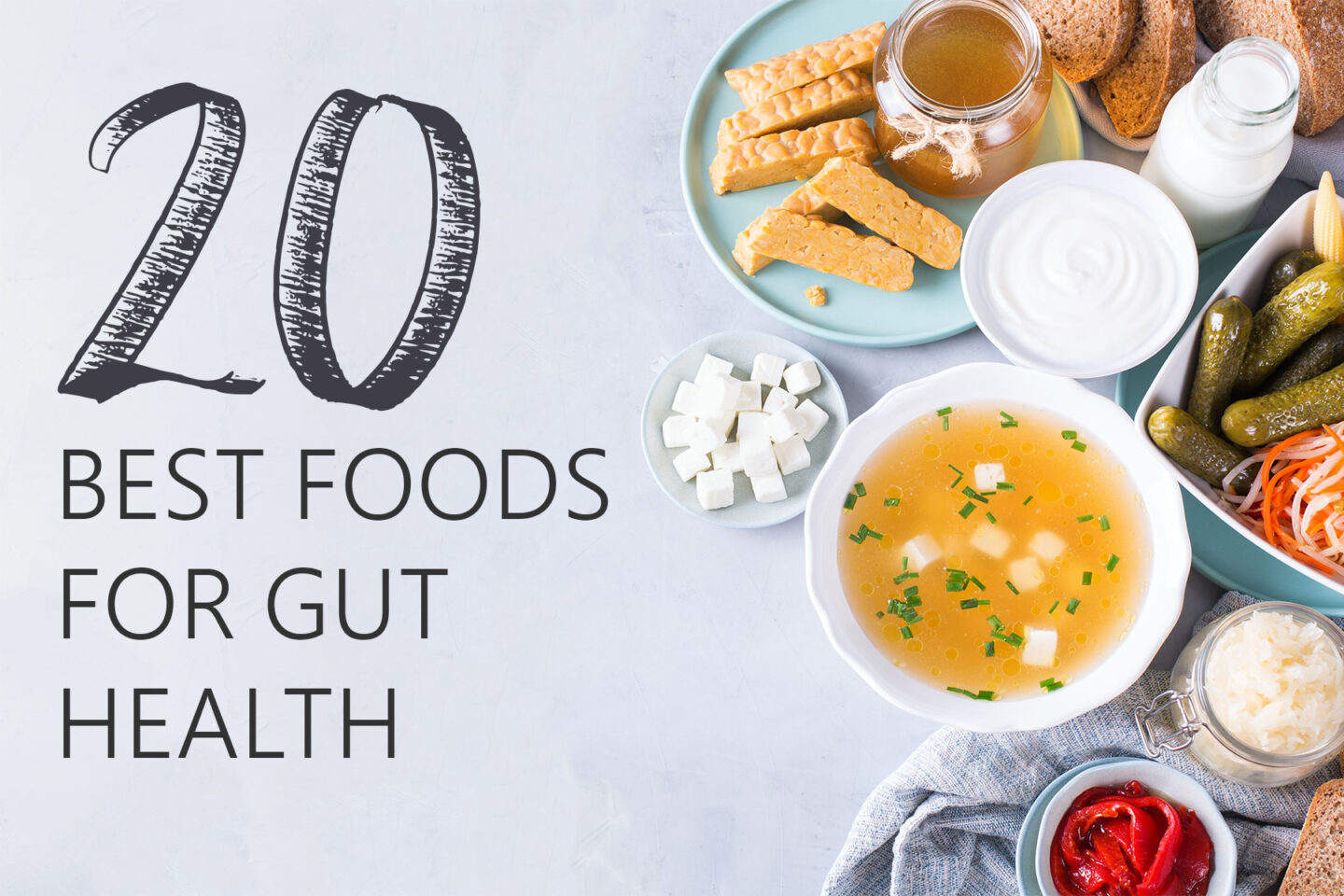
Foods that contain a lot of vitamins, probiotics, antioxidants, minerals, and other nutrients benefit your gut by nurturing a balanced bacterial flora.
More often than not, these foods are fresh and natural, providing you with very few calories but benefiting your health significantly.
They’re also very easy to add to any diet, and there are many to choose from. Below, I've listed twenty of the best.
Table of Contents
20 Best Foods for Gut Health
1. Kefir
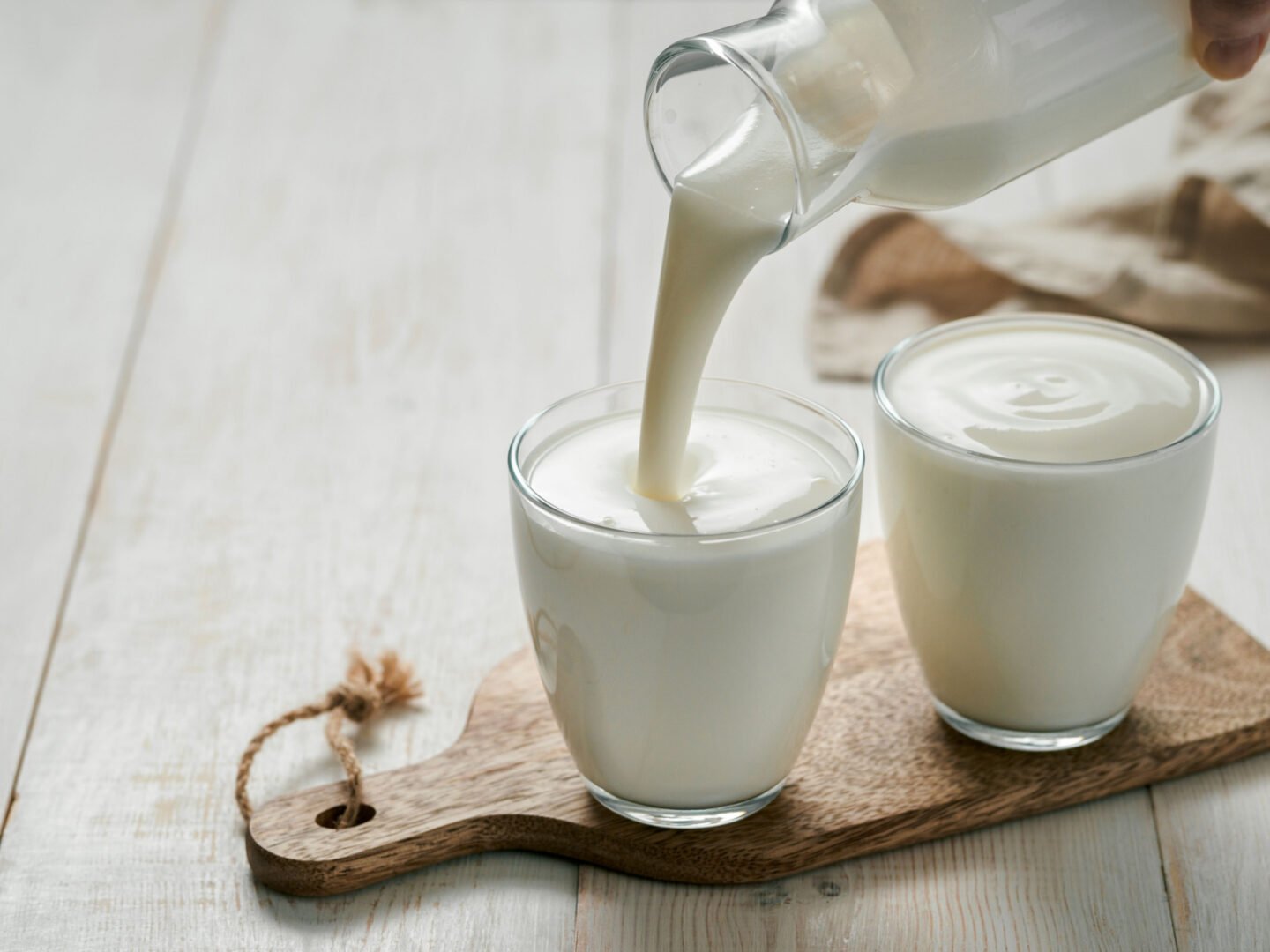
Kefir contains lots of probiotics, with over 30 strains of bacteria and yeast that help keep your gut healthy. Probiotics improve digestion, prevent constipation, and keep you regular.
Eating probiotic-rich foods is important if you're taking antibiotics, as this medication can kill beneficial bacteria, disturbing the balance of your gut biome.
Probiotic-rich foods like kefir can help restore the levels of good bacteria in your gut after finishing a course of antibiotics.
Kefir also provides calcium, phosphorus, vitamin B12, riboflavin, and vitamin D, which are also good for your gut health.
2. Yogurt
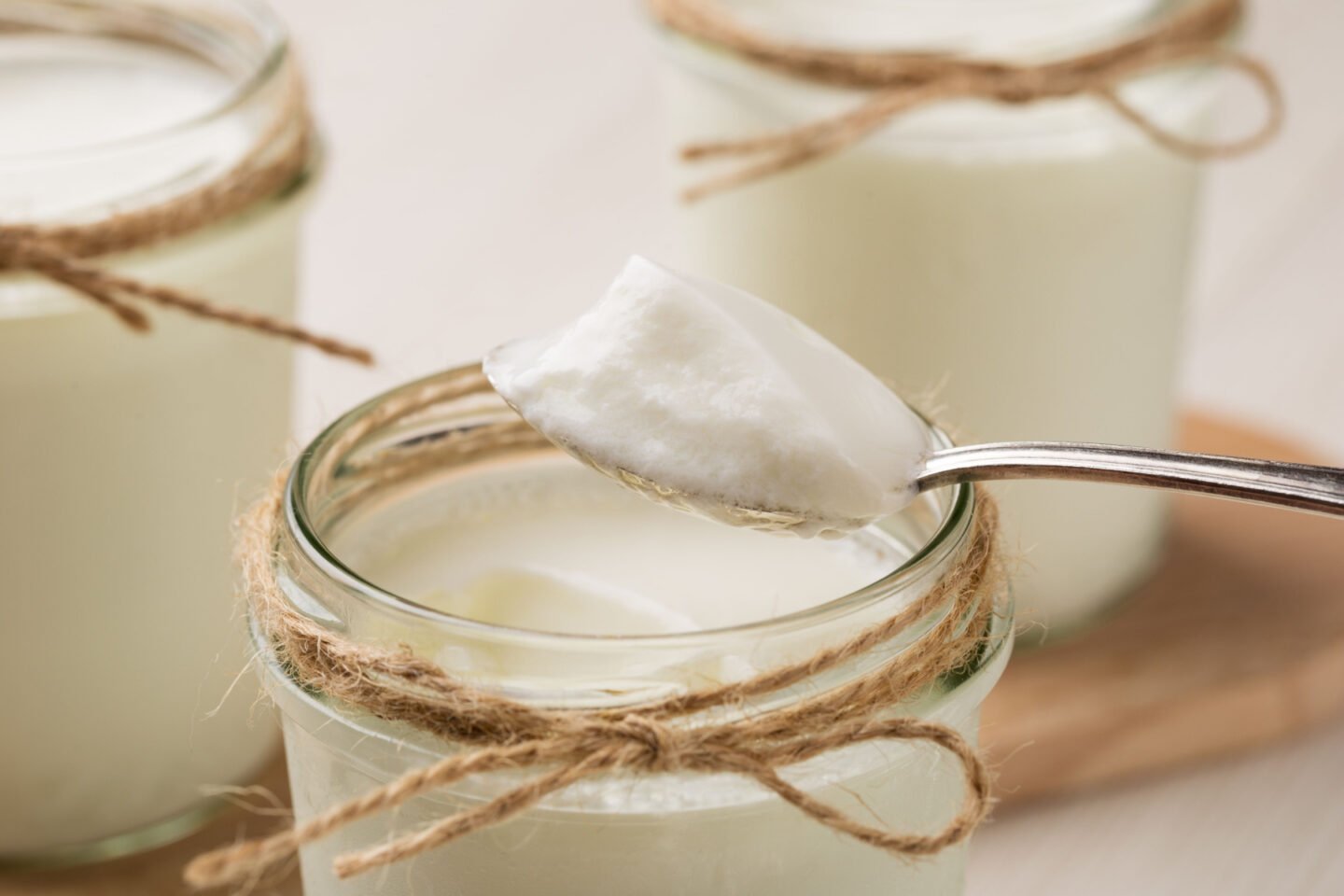
Just like kefir, yogurt has many naturally occurring probiotics, and some yogurts have added probiotics, making them even better for your health.
The probiotics in yogurt also help fight inflammation in your body, ensuring the integrity of your intestinal lining, which prevents bacteria from entering the bloodstream and causing infection.
Greek yogurt can have more probiotics than regular yogurt and is high in protein, another important nutrient.
Other nutrients found in yogurt include riboflavin, vitamin B12, pantothenic acid, calcium, phosphorus, potassium, and zinc. The B-group vitamins in yogurt also benefit your gut health.
3. Sauerkraut
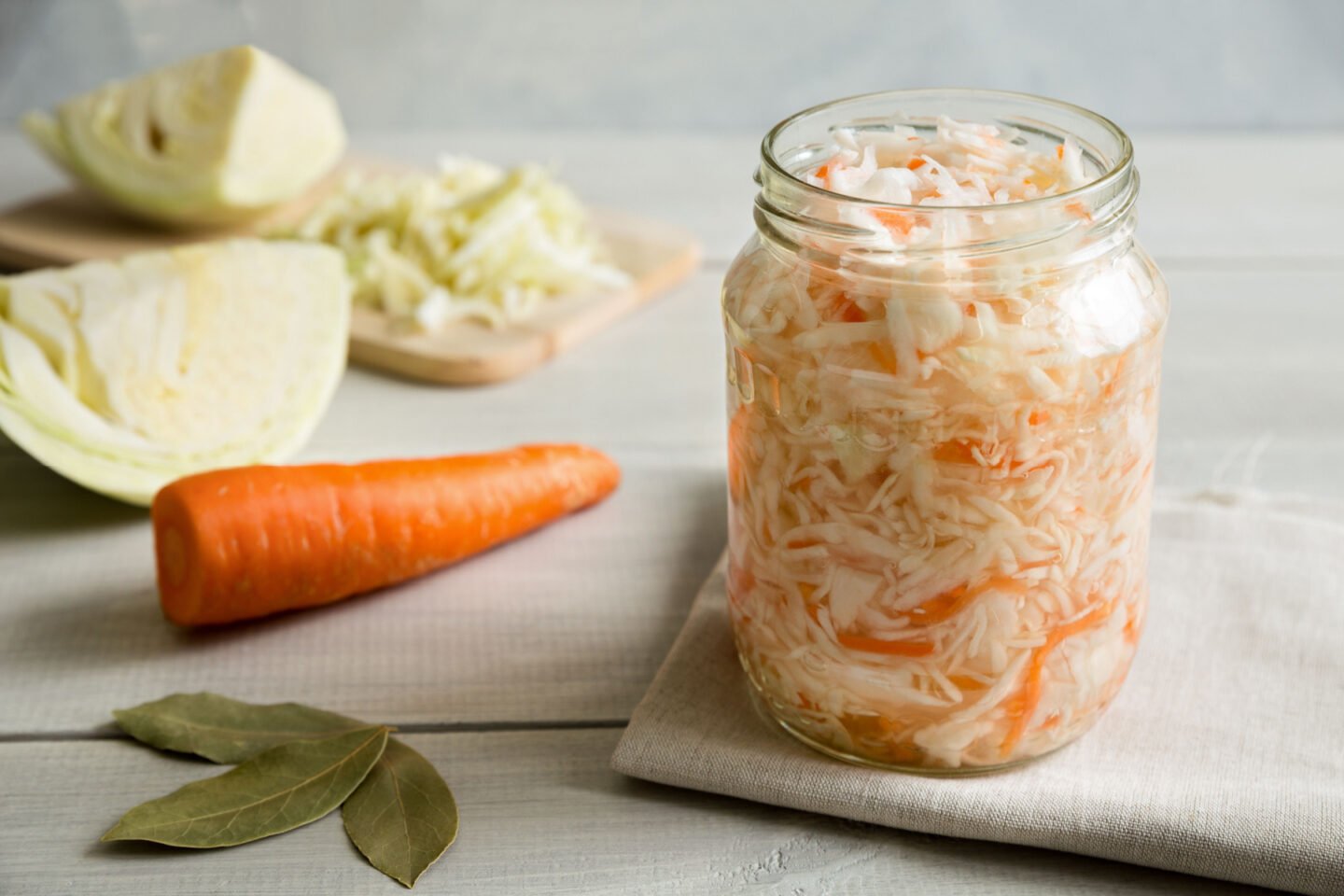
Sauerkraut is cabbage fermented using lactic acid bacteria. The fermentation process gives it its characteristic sour taste and allows it to be stored for a long time.
Sauerkraut is loaded with probiotics produced by fermentation, so it's great for your gut health. Adding it to your diet can help food pass through your digestive system, keeping you regular.
Sauerkraut is also a great source of vitamin K, manganese, and iron. However, it's high in sodium, so consume it in moderation.
4. Miso
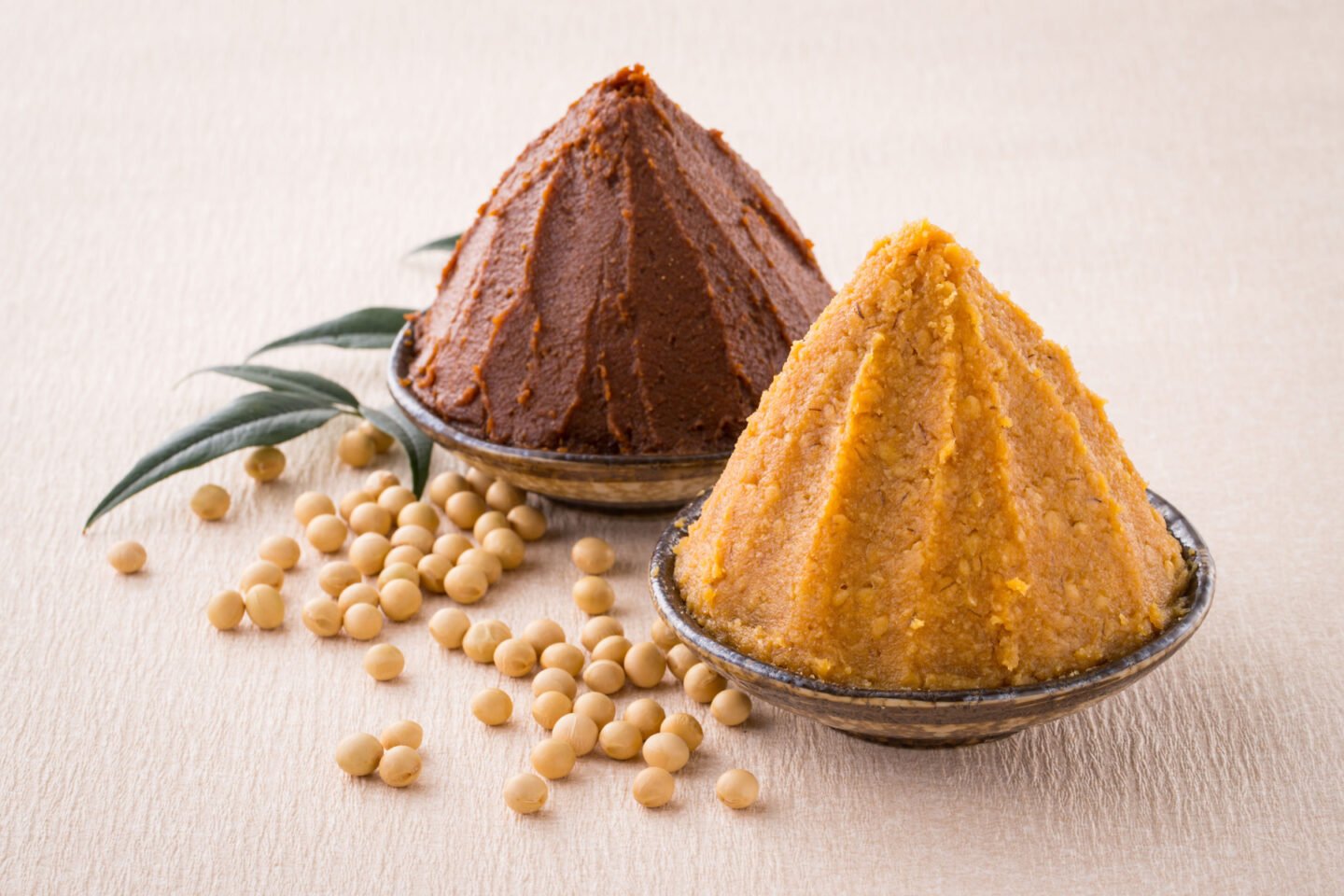
Miso is a traditional Japanese seasoning made by fermenting soybeans with salt and a special fungus. It's full of probiotics that reduce the risk of inflammation and other digestive problems like acid reflux and IBS.
It's also a good source of nutrients like vitamin K, manganese, copper, and iron. So, miso is an excellent addition to a healthy diet.
A word of caution, a one-ounce serving of miso contains over 43% of your daily recommended allowance of sodium.
5. Kimchi
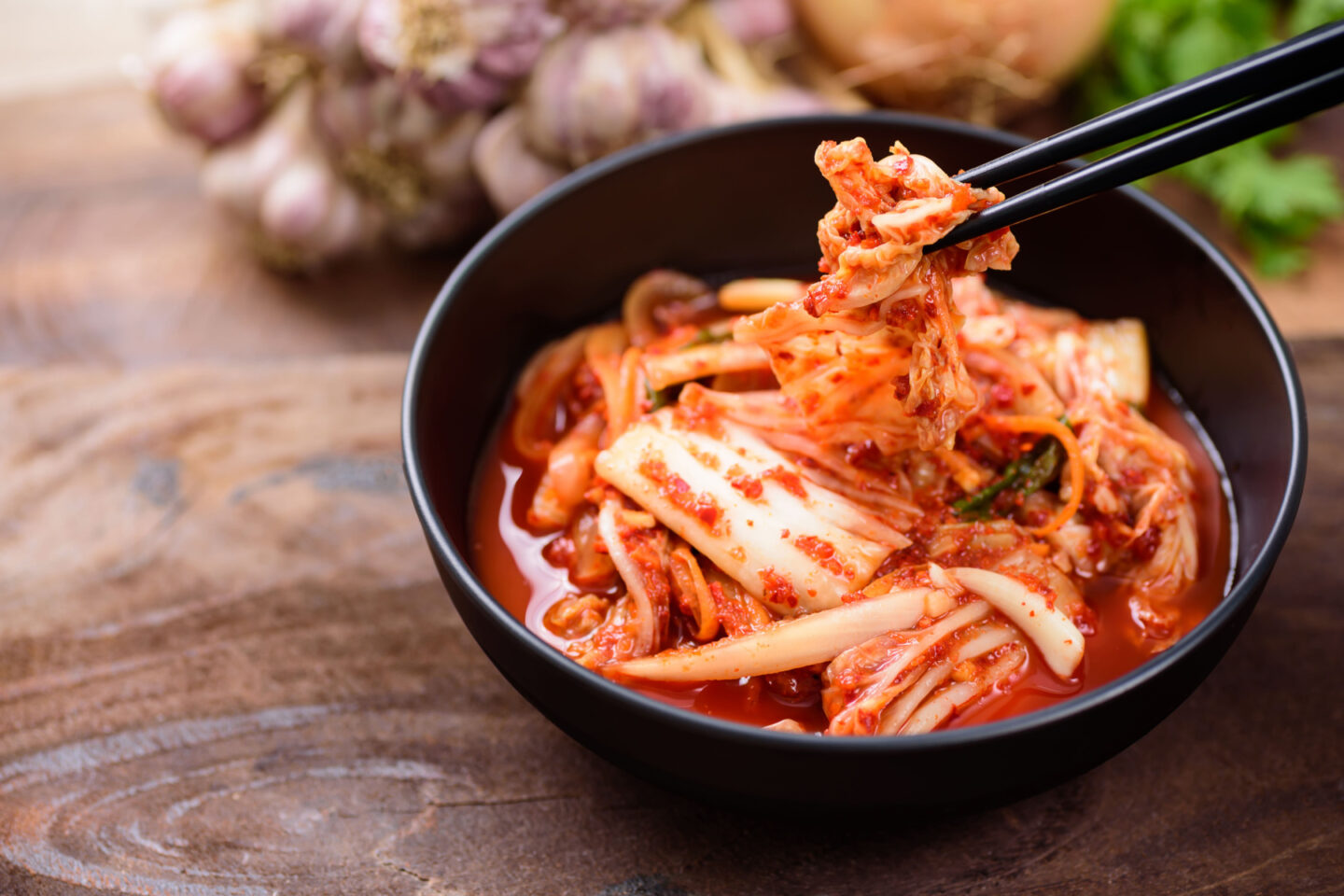
Kimchi is a delicious fermented Korean dish containing cabbage, Korean radish, ginger, soy sauce, spring onions, garlic, and more, depending on the recipe.
It's full of bacterial probiotics produced during fermentation and can reduce the symptoms of IBS and colon inflammation.
Kimchi also contains a good amount of vitamin A, vitamin K, folate, antioxidants, potassium, and calcium.
6. Fermented Sour Pickles
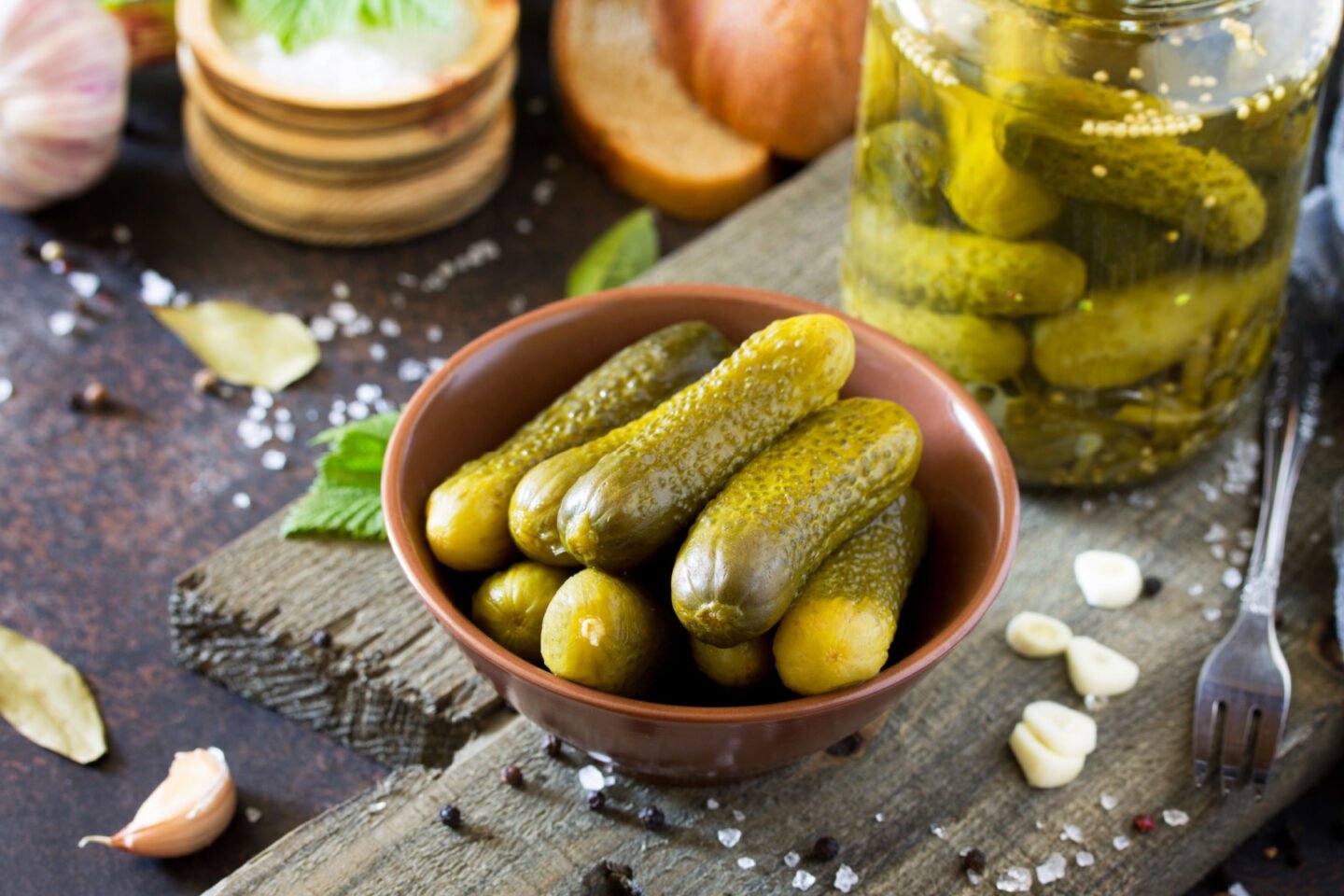
Fermented sour pickles are made with garlic, horseradish, and various herbs and contain lots of probiotics.
Adding fermented sour pickles to your diet can help you manage the symptoms of constipation and diarrhea, especially if you suffer from digestive system issues like IBS, GERD, or Crohn’s disease.
Besides probiotics, the garlic, horseradish, and herbs add vitamin K, vitamin B6, manganese, vitamin C, and lots of antioxidants that can help prevent digestive issues.
Fermented sour pickles are also high in sodium, so bear that in mind when planning your meals.
7. Almonds
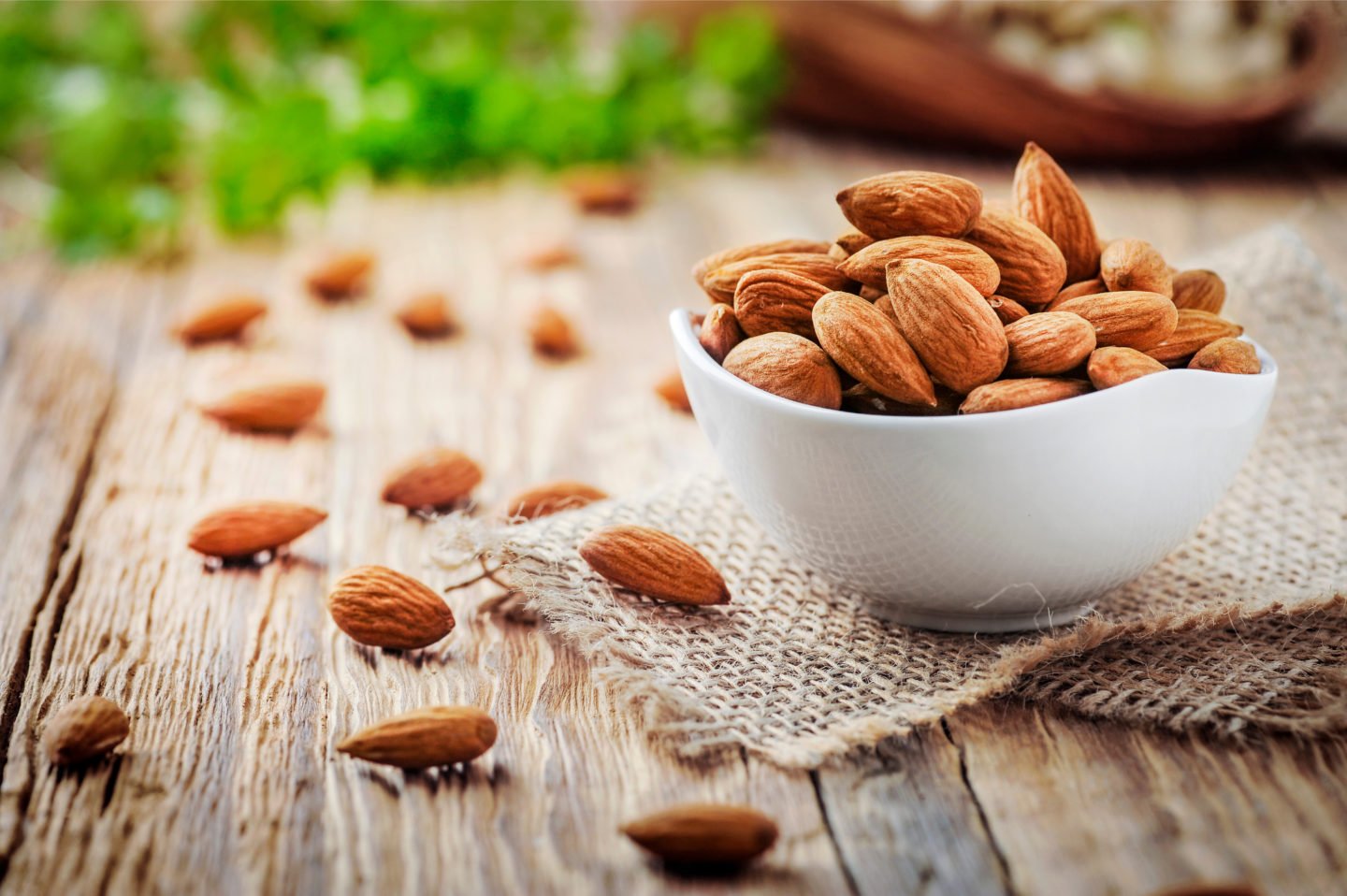
Several studies show almonds contain prebiotics and antioxidants that help your body fight digestive issues, including constipation, diarrhea, and indigestion.
Almonds also contain omega-3 fatty acids, which are crucial for your gut health. They also contain vitamin E, riboflavin, magnesium, phosphorus, and manganese.
Fiber is essential for your gut health, and a serving of almonds contains 3.3 grams, 13% of the recommended daily intake.
8. Sourdough
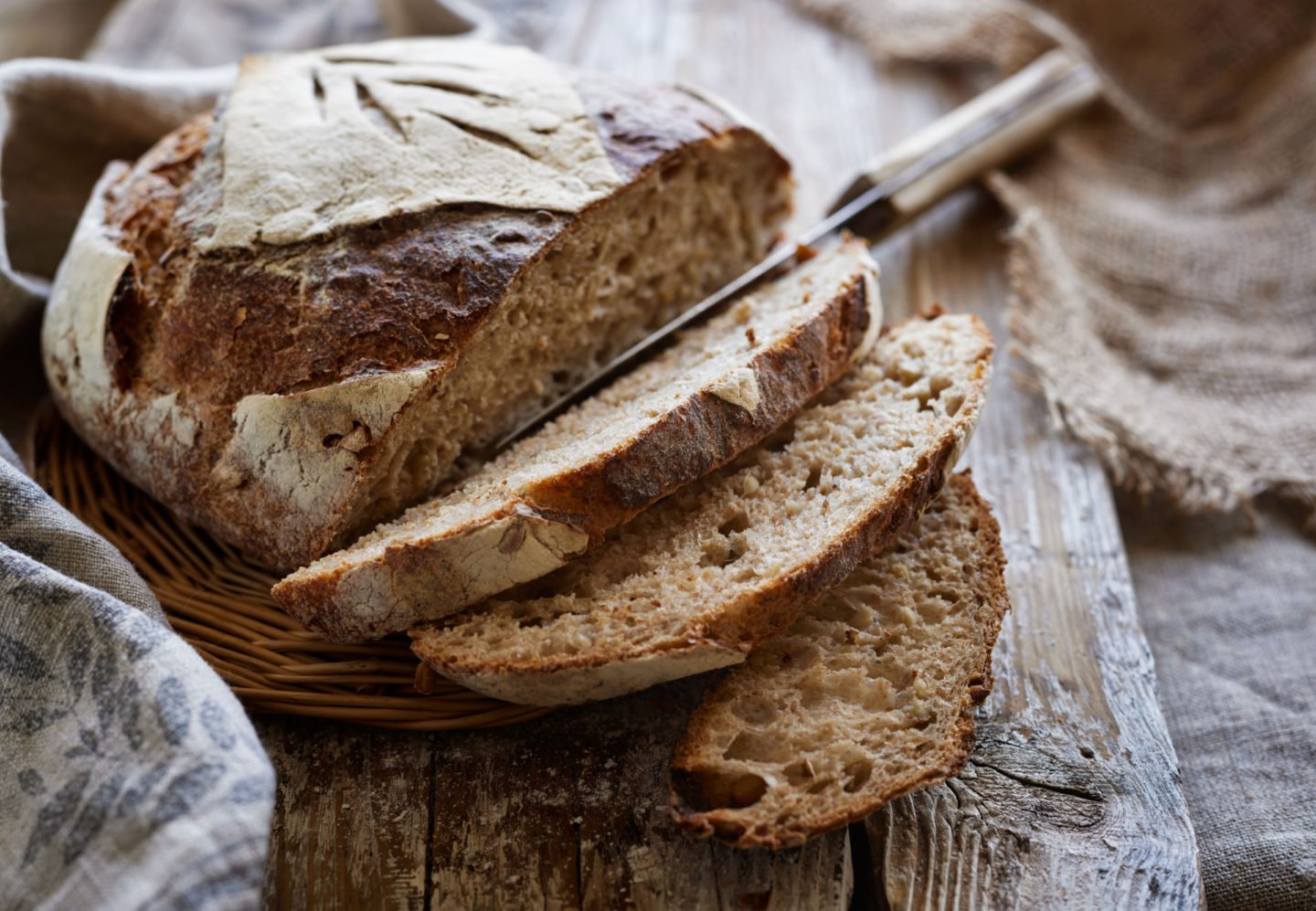
Sourdough is a low-gluten bread made from fermented dough that contains a lot of fiber, which feeds good gut bacteria.
This encourages the growth of more good bacteria and diverse microbiota.
Sourdough also contains selenium, folate, thiamine, niacin, and iron.
9. Kombucha

Kombucha is another fermented food that can improve your gut health. It’s full of antioxidants and live bacteria, which improve immune function and aid digestion.
Kombucha also helps reduce inflammation in your stomach, reducing symptoms of digestive issues, such as GERD, IBS, and acid reflux.
It also helps flush out toxins and harmful chemicals from your body, reducing your risk of various diseases.
Kombucha is also very easy to add to any diet.
10. Tempeh
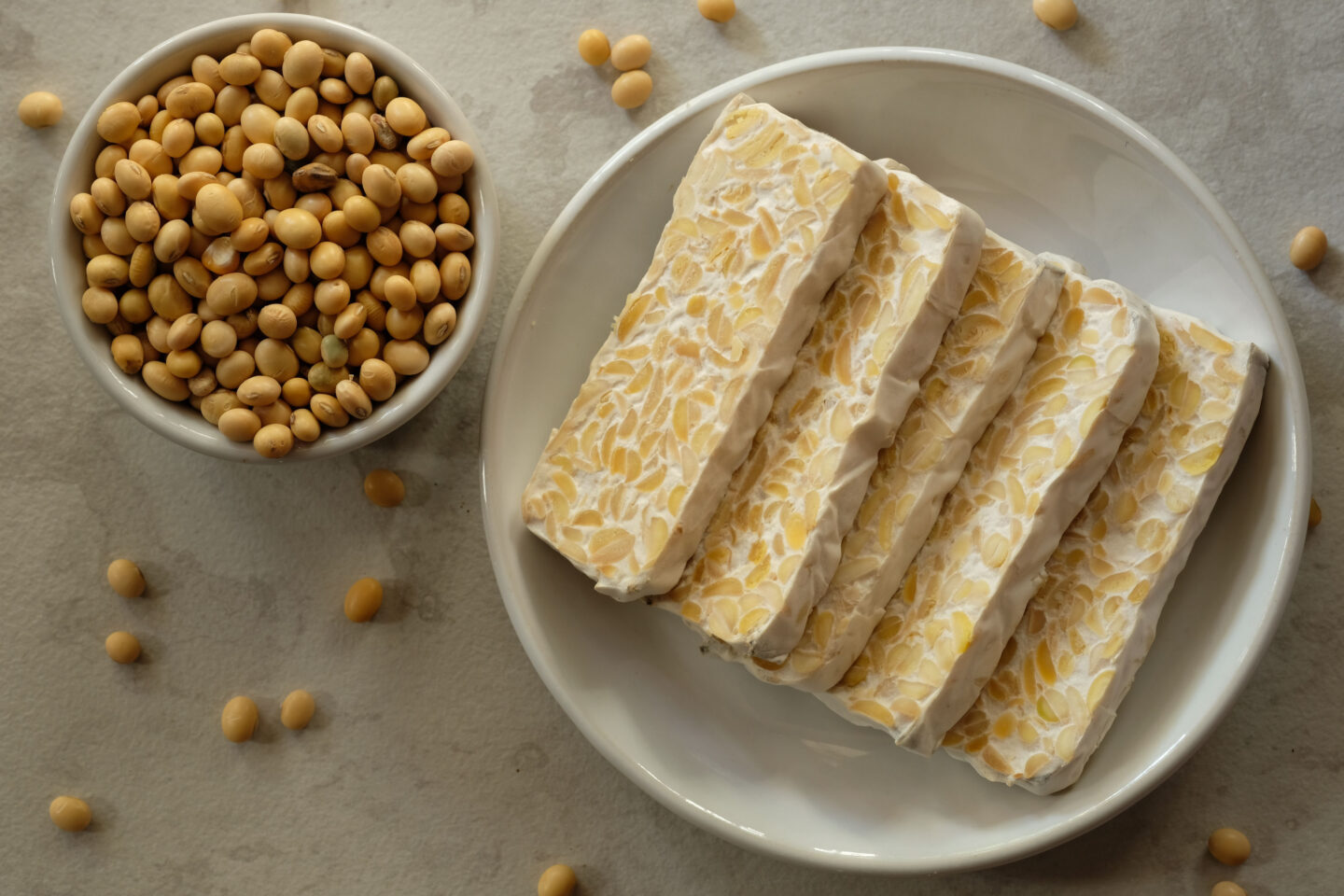
Tempeh is a traditional Indonesian food that is made with fermented soybeans. It contains a lot of live bacteria that improve your gut and digestive health.
It's also an excellent source of various B vitamins, including riboflavin, niacin, vitamin B6, and vitamin B12, which contribute to your gut health.
Tempeh is also full of manganese, phosphorus, magnesium, and copper, so add it to your diet if, like many people, you're deficient in any of these minerals.
11. Kale
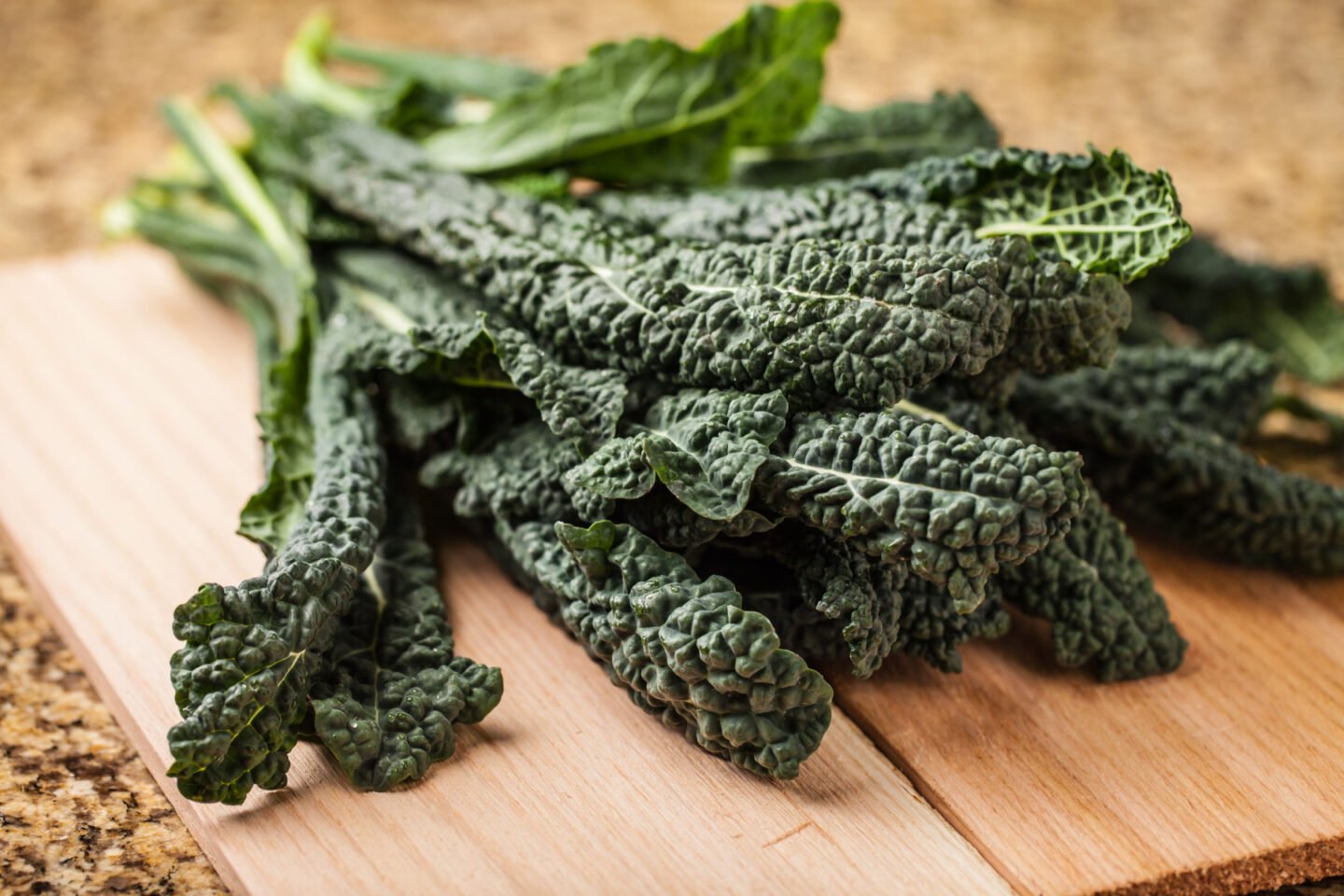
Kale is a healthy leafy green that’s full of antioxidants. Since these plant compounds flush out free radicals from your body, they help improve the health of your digestive system by fighting against inflammation and other conditions.
Kale also contains lots of fiber, folate, vitamins C, vitamin K, and vitamin A. Studies show that these nutrients promote the growth of healthy gut bacteria.
In addition, kale is very low in calories and is easy to add to any diet.
12. Avocados
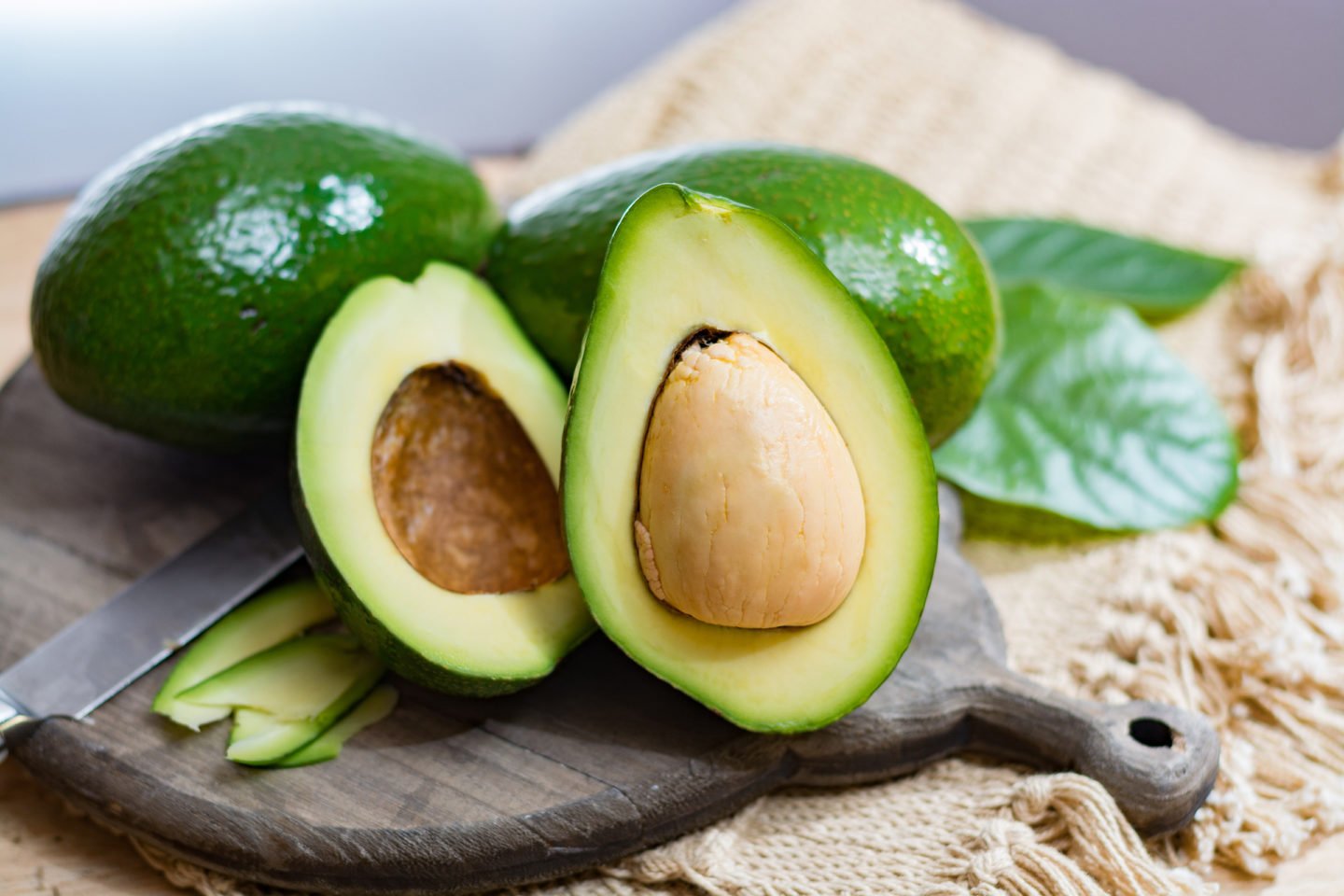
Studies show that eating avocados frequently encourages rapid growth in healthy gut bacteria.
Avocados also contain many omega-3 fatty acids, which encourage a diverse gut biome and are good for your overall health.
Avocados are an excellent source of fiber, vitamin C, vitamin K, B vitamins, potassium, and many powerful antioxidants.
They're a great addition to a healthy, balanced diet aimed at improving your gut health.
13. Chia seeds
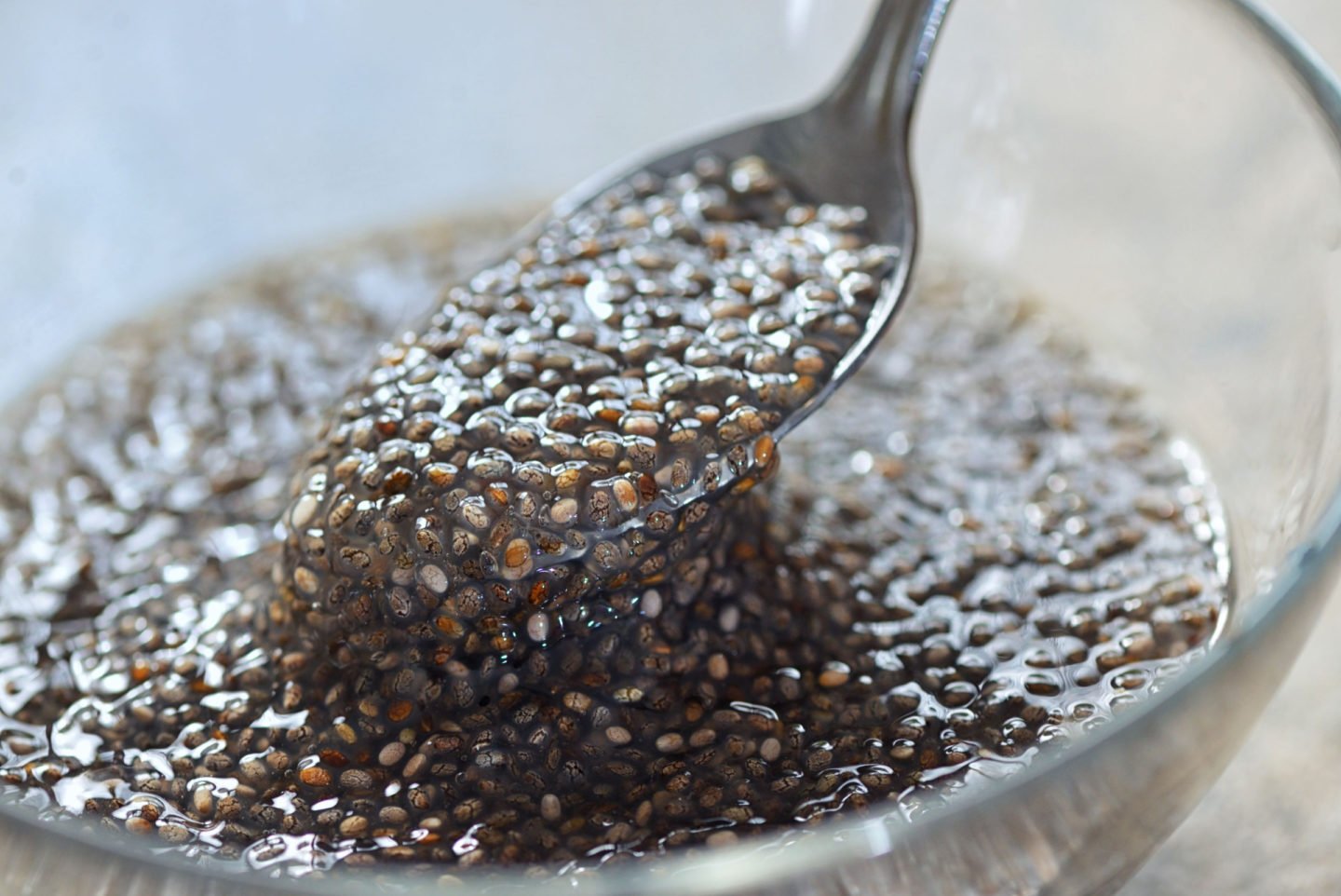
Adding water to chia seeds turns them into a fiber-rich gel that adds bulk to the stool, feeds good gut bacteria, and slows down digestion, making you feel full longer.
Adding chia seeds to your diet also helps maintain blood sugar levels, which lowers your risk of diabetes.
Including chia seeds in your meals can also increase your phosphorus, calcium, and manganese intake.
14. Apple Cider Vinegar
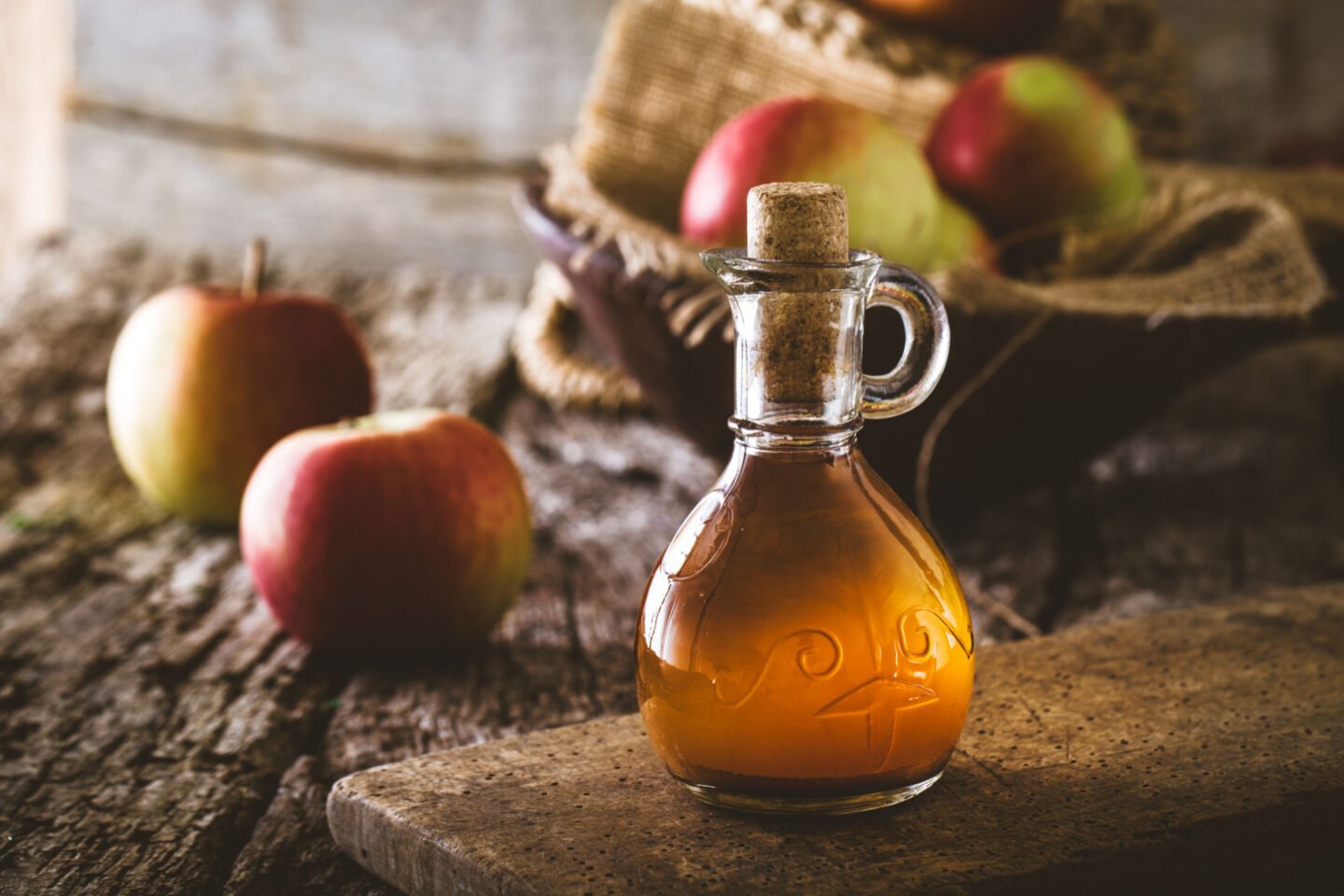
Apple cider vinegar reduces inflammation and supports healthy digestion. It's also very low in calories, which makes it a great addition to your diet if you're trying to lose weight.
It also contains natural probiotics, which diversify the good gut bacteria without putting too much stress on your digestive system.
You can easily add apple cider vinegar to salads or other dishes.
15. Soft Cheeses
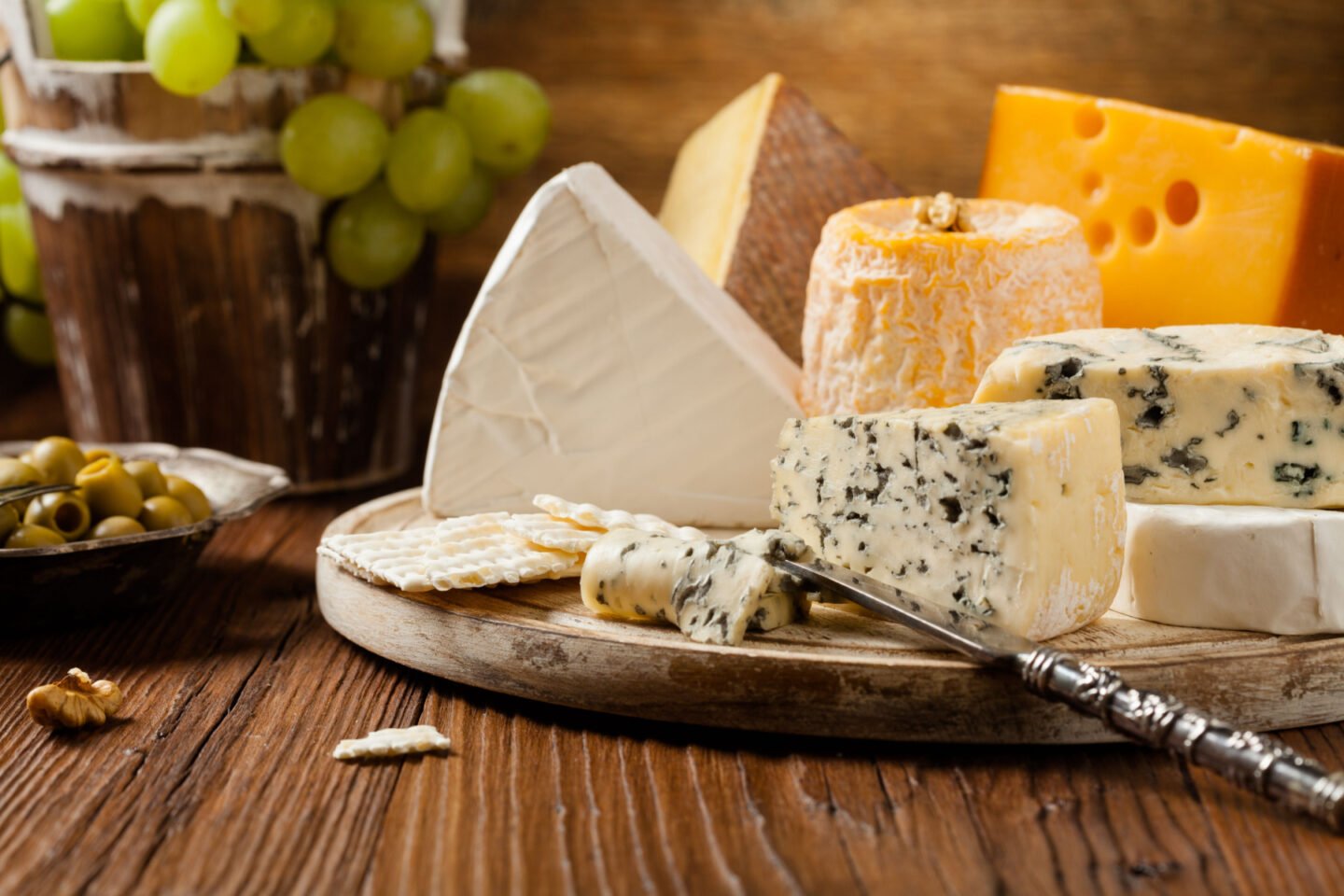
Soft cheeses like fermented cheese and cottage cheese contain a lot of probiotics.
They’re also rich in several vitamins and minerals and protein.
16. Ginger
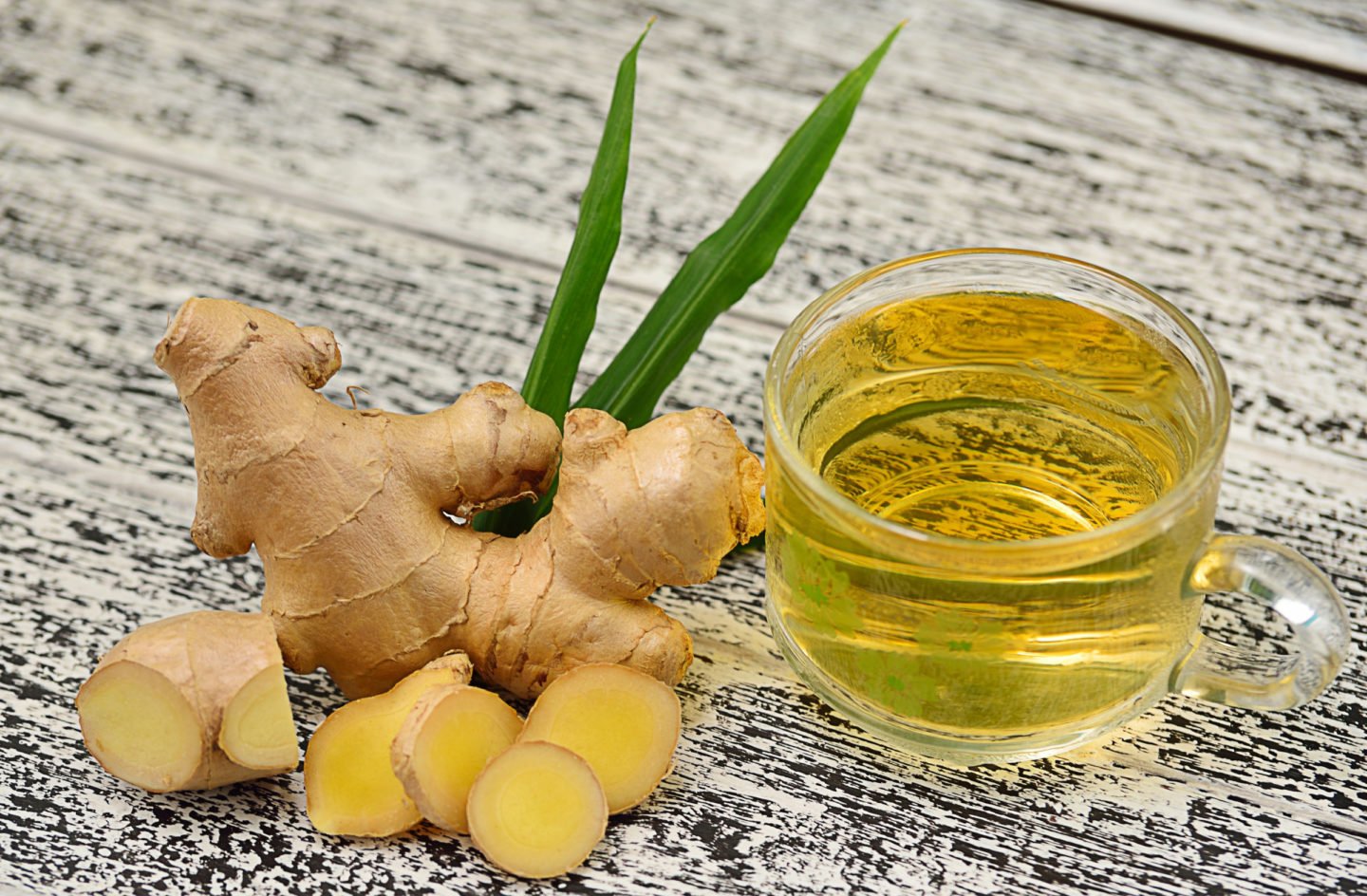
Ginger tastes great and benefits your digestive health, aiding digestion and reducing bloating.
Ginger tea can also reduce the symptoms of nausea and help food move through your digestive tract. It's also low in calories and high in antioxidants.
17. Bone Broth
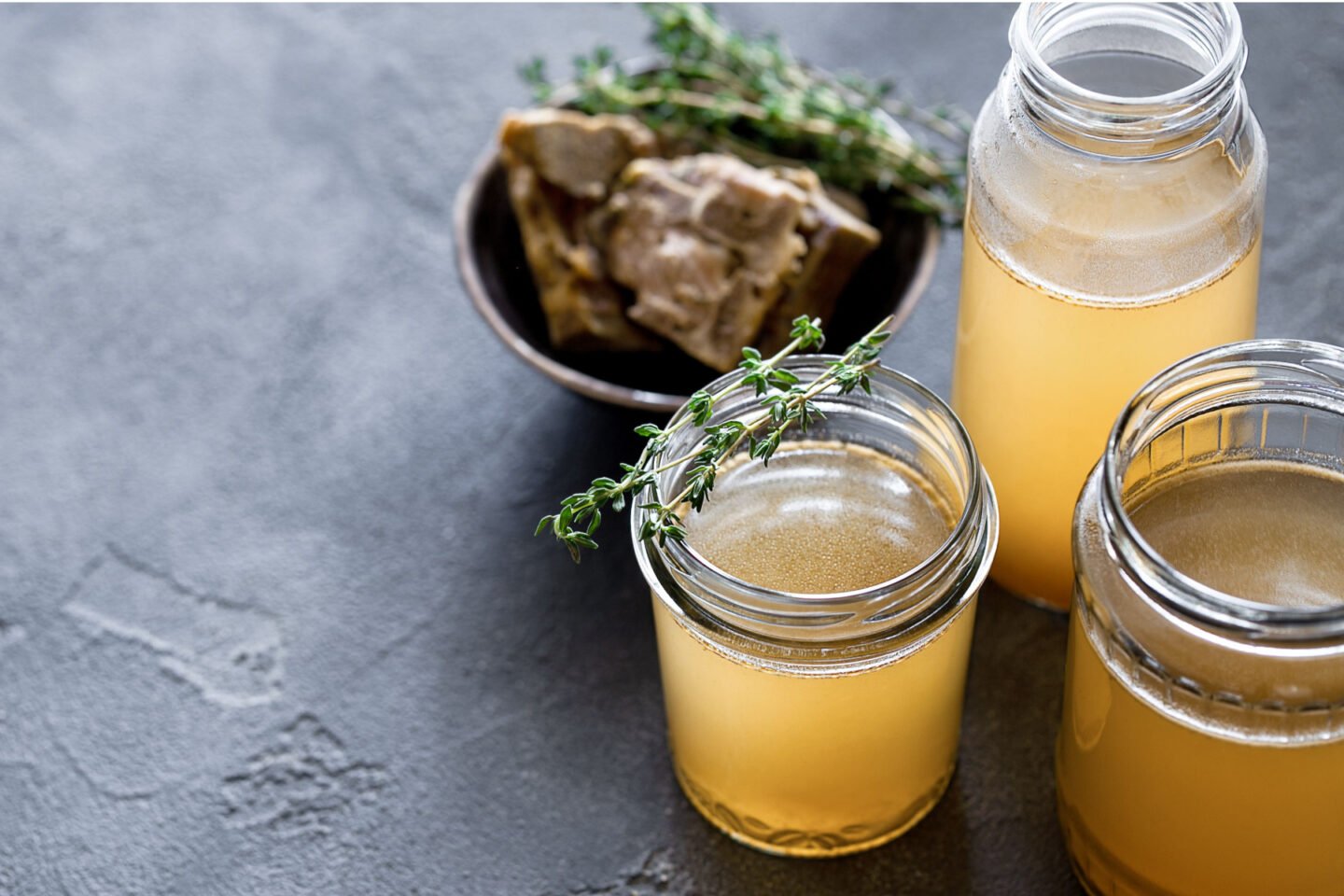
Bone broth, especially homemade, contributes to a healthy gut. It’s also rich in antioxidants and electrolytes, which help prevent disease and keep you hydrated.
Bone broth can be high in sodium, so add it to your diet sparingly.
18. Asparagus
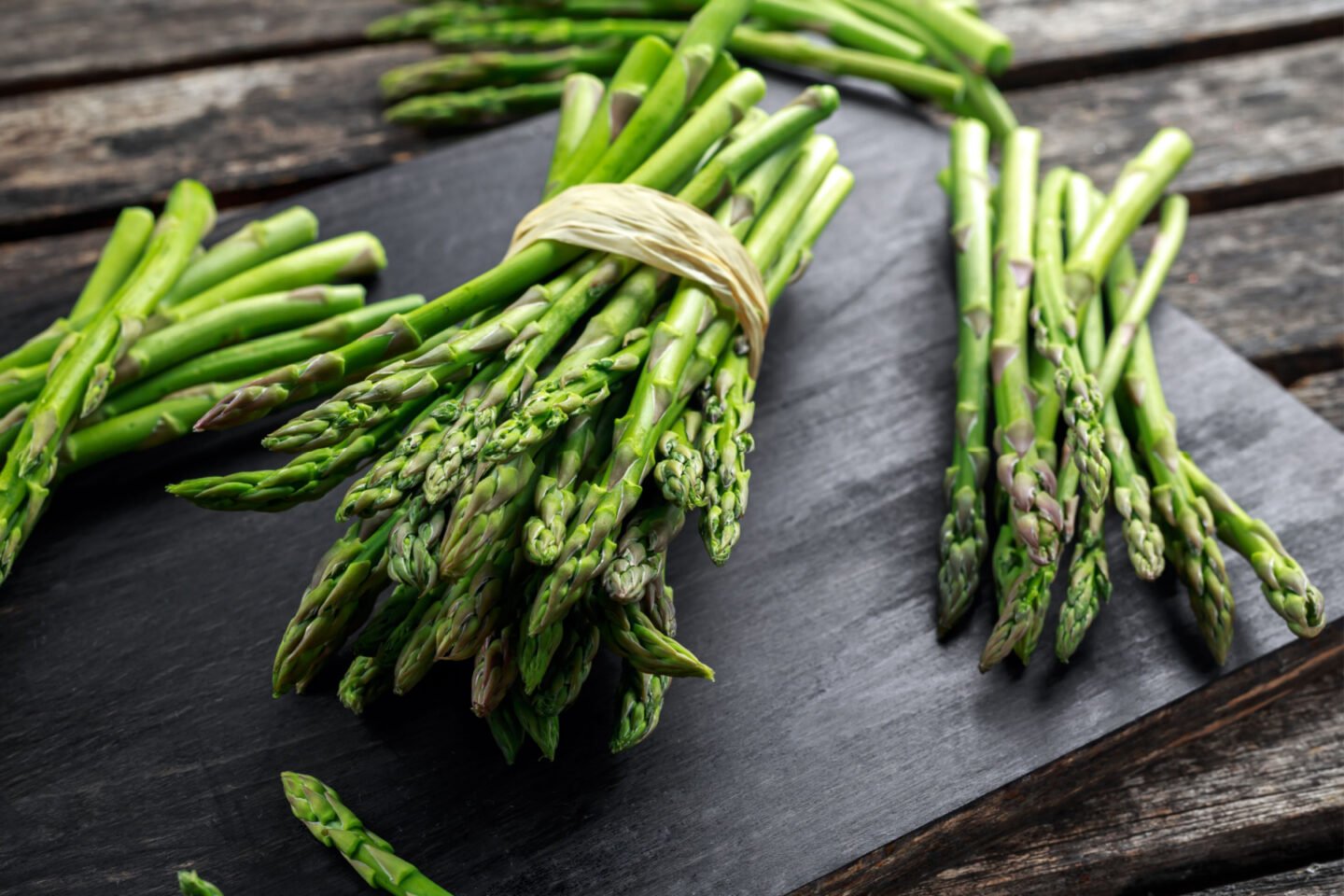
Asparagus is rich in fiber, which aids digestion, keeps you from overeating, and helps food travel through your digestive tract.
It also contains antioxidants that flush out free radicals, preventing oxidative stress and cell damage.
Asparagus may also help prevent diabetes, digestive disorders, and chronic inflammation.
19. Quinoa
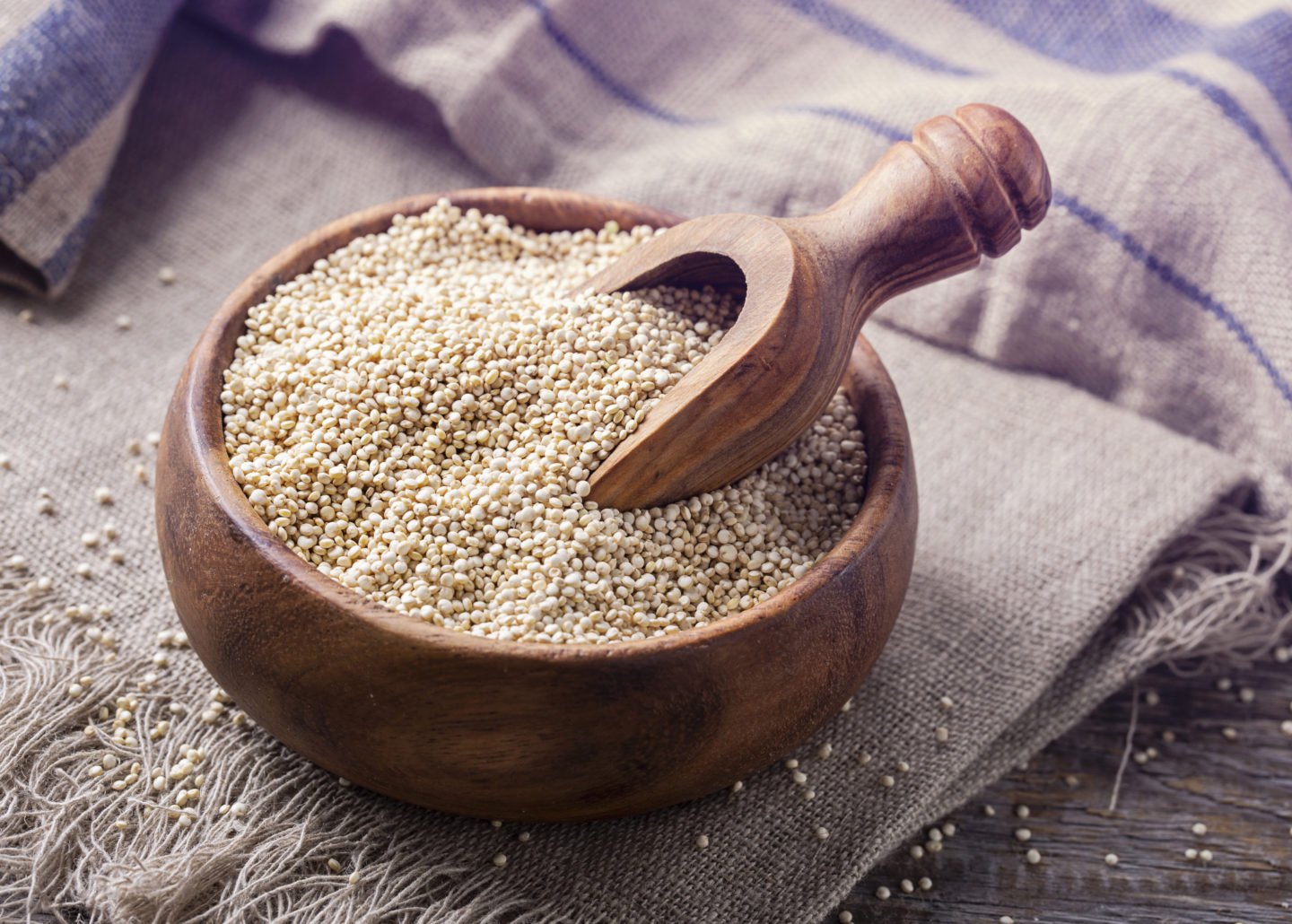
Quinoa is a complete protein and an excellent source of fiber; a one-cup serving contains 5.2 grams, or 21% of the recommended daily intake.
Quinoa also contains lots of B vitamins, magnesium, iron, and phosphorus.
20. Salmon
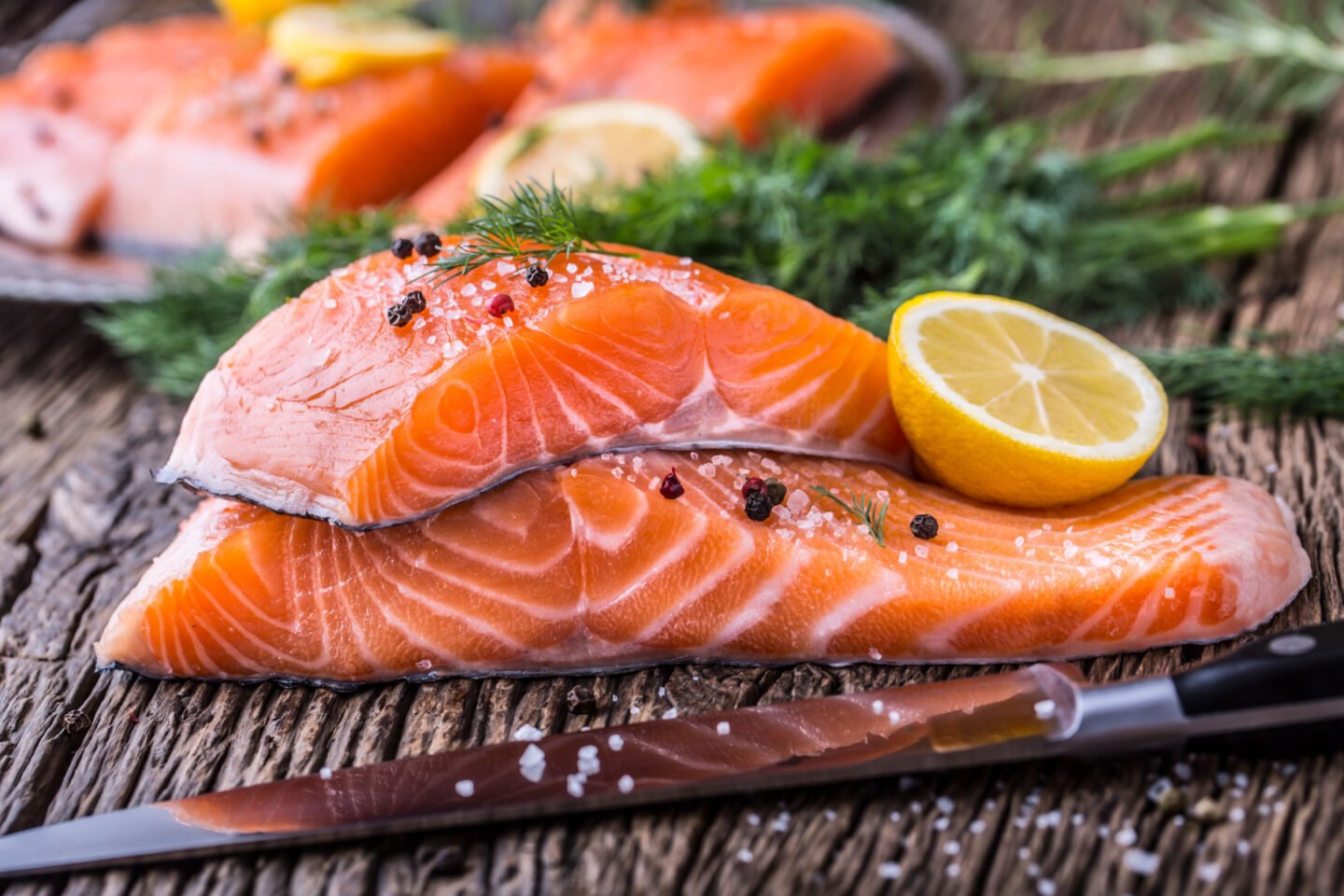
Salmon is a delicious oily fish that’s loaded with omega-3 fatty acids, which contribute to a diverse gut microbiome and help absorb fat-soluble nutrients, such as vitamins A, D, E, and K.
Omega-3 fatty acids also help reduce bad cholesterol levels, guarding against heart disease. They may also lower your blood pressure, reducing your risk of strokes.
Salmon also contains compounds that prevent inflammation, further improving the health of your gut.
Conclusion
There are many foods that can help keep your gut healthy and free of digestive problems.
These foods are also rich in powerful plant compounds, macronutrients, vitamins, and minerals.
Adding these gut-friendly foods to your diet is incredibly easy. Some of them can be eaten on their own, while others can be added to larger dishes.
Sources: National Library of Medicine, PMC, and Springer
